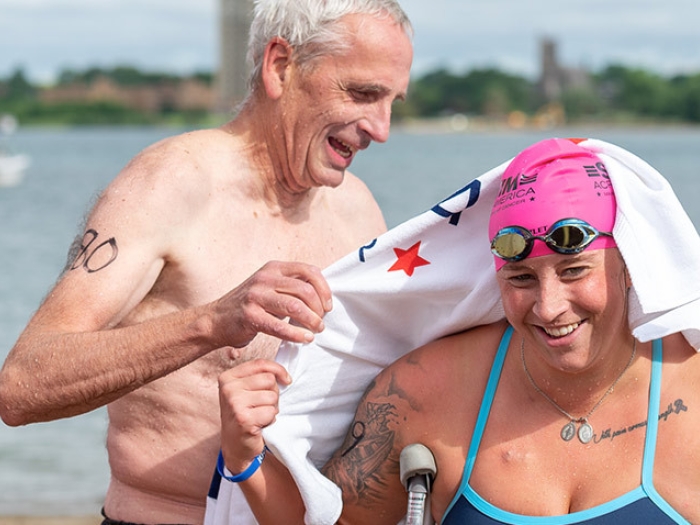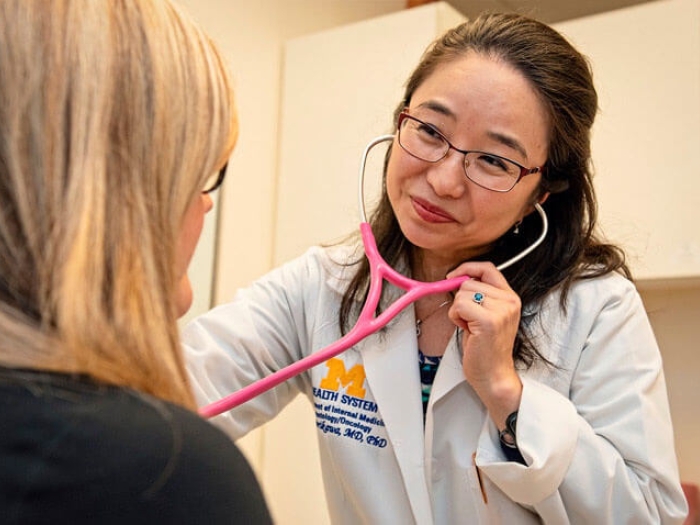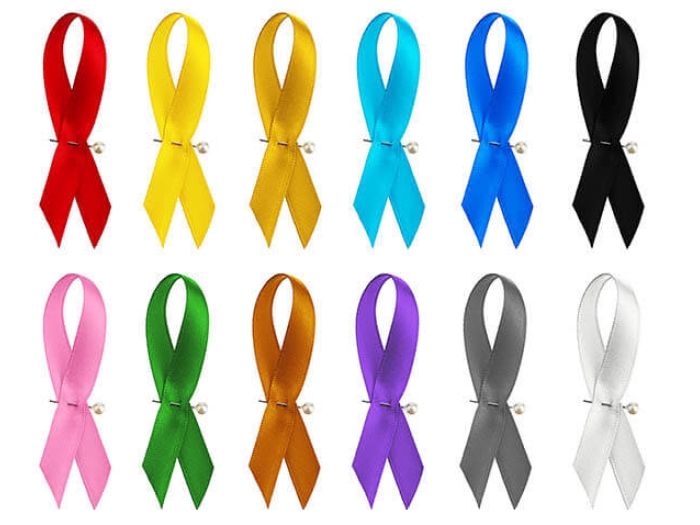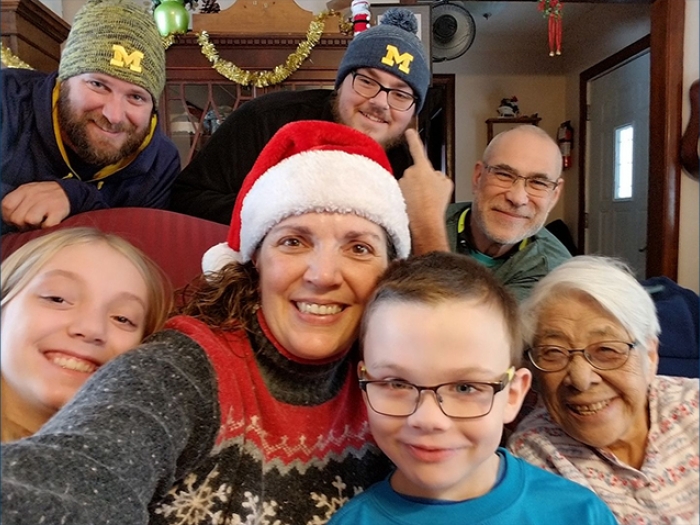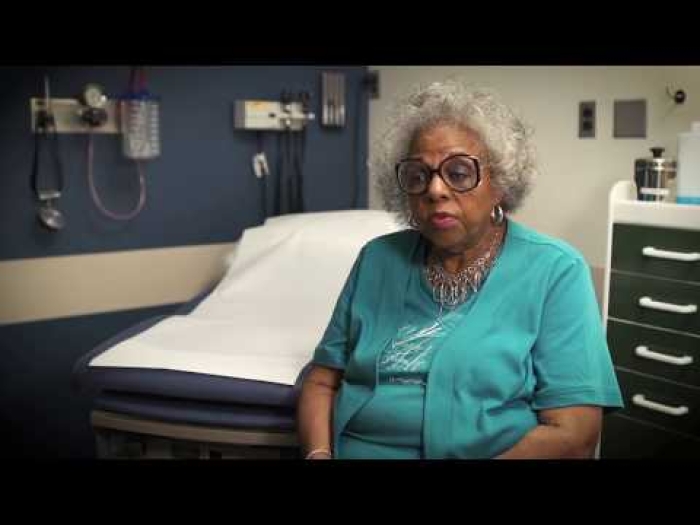A breakthrough treatment supported by a multitude of federal agencies helped one woman beat cancer, leading her to speak out about the importance of continuing such work.
1:00 PM
Author |

After a diagnosis of non-Hodgkin lymphoma in 2002, it was impossible for Betsy de Parry to imagine a time when cancer wasn't at the forefront of her mind.
MORE FROM MICHIGAN: Sign up for our weekly newsletter
A patient at the University of Michigan Comprehensive Cancer Center, de Parry hadn't responded to two types of chemotherapy treatment. Her options seemed to be fading.
Then, a new therapy called radioimmunotherapy became available.
De Parry vividly remembers the day she took the first treatment. She and her husband, Alex, cried as the drugs flowed into her body.
"We knew this was my last best chance," says de Parry, who credits not only the medical breakthrough but also the timing to her survival. "We also knew if research had stalled, even for a few short weeks, I would probably be pushing up daisies instead of enjoying my life today."
After just two doses two weeks apart, the treatment — a targeted approach that delivers radiation directly to cancer cells — had a remarkable effect on de Parry's cancer: Doctors found no evidence of disease.
Fifteen years later, her cancer hasn't returned.
De Parry's oncologist, Mark S. Kaminski, M.D., is a U-M researcher who discovered and developed the lifesaving treatment.
The de Parrys, professional builders by trade, shared their gratitude publicly: The Mark Condominiums, in the Old West Side Historic District of downtown Ann Arbor, are named in Kaminski's honor.

A strong foundation
The patient realizes there are countless others who also deserve recognition.
"Cutting-edge research saved me, and Michigan is at the forefront," de Parry says. "We know there were thousands of people — from those in the research labs to people approving the funding at the National Institutes of Health to the FDA people who approved the drug — who played a role in saving my life that day. I'll never be able to thank them all."
That's why de Parry has written and spoken out about the importance of continued cancer research in the United States, citing four key reasons:
-
It benefits cancer patients today who are seeking cures for their illness.
-
It offers hope to cancer patients diagnosed in the future.
-
It provides an economic engine that creates jobs and drives our successful economy.
-
It allows the U.S. to maintain pre-eminence in biomedical research.
"It would be a huge mistake for the NIH to lose research funding," she says. "I am one of thousands of people who are literally living proof that government funding saves lives. It's that simple. We stand as a return on this nation's investment."
SEE ALSO: How Cancer Research Gave Hope to a Patient Previously Out of Options
Today, cancer is no longer the first thing de Parry thinks about in the morning or the last thing she thinks about before falling asleep. She and Alex continue to be busy with building projects in Ann Arbor and Saginaw while spending as much time as possible on their boat on the Detroit River during the summer months.
"You do eventually get your life back, and it can be better," she says. "You make the best of every day and appreciate every day."

Explore a variety of healthcare news & stories by visiting the Health Lab home page for more articles.

Department of Communication at Michigan Medicine
Want top health & research news weekly? Sign up for Health Lab’s newsletters today!
